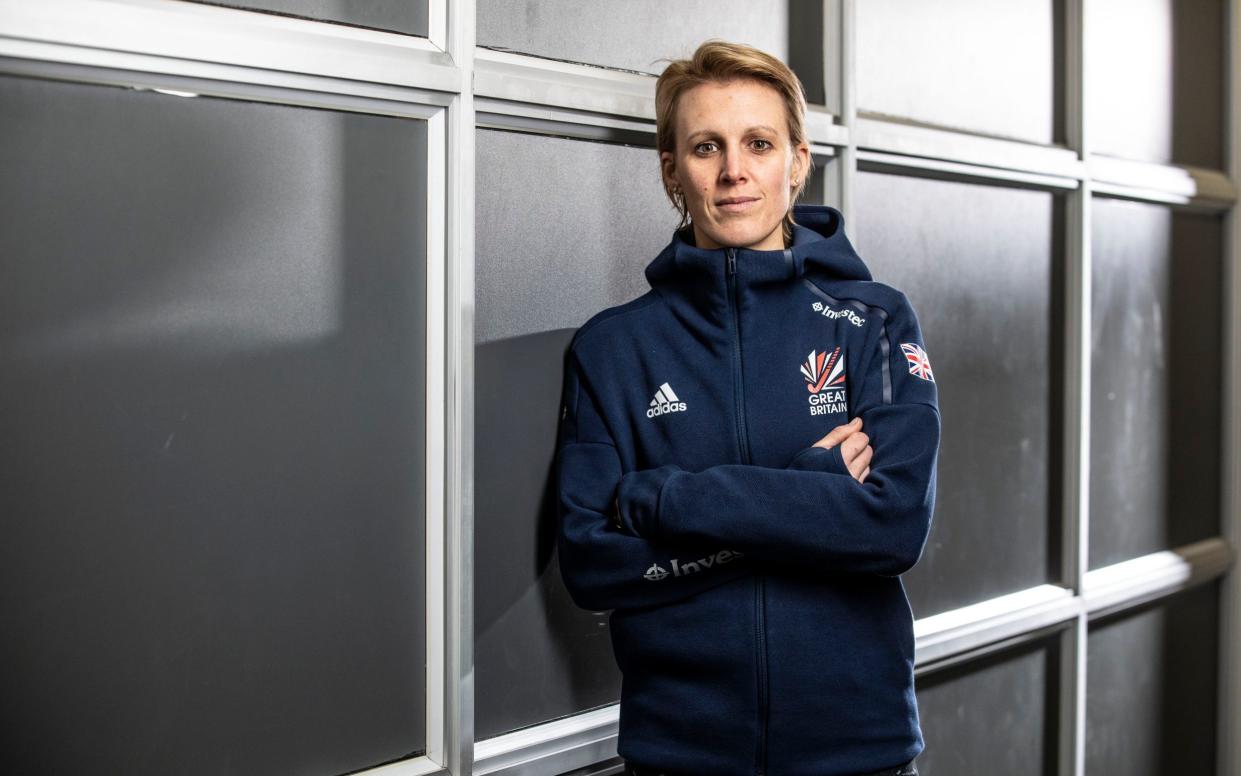Alex Danson has 'zero regrets' after bringing glittering career to an end following cruel head injury

After 18 years, Olympic gold and bronze medals, an MBE, a record 203 England caps, a record 103 Great Britain appearances and numerous other accolades and honours, Alex Danson penned an emotional full stop on one of hockey’s most remarkable careers this week.
She also outlined a belief that moving into this next phase of life – a decision framed, but not exclusively decided, by the brain injury she suffered in September 2018 – can have an even deeper purpose. “For 18 years, every decision I made was around: ‘Will this make me better?’” she says. “My heart is in a multitude of places now but my intention is clear – it’s serve others and in some ways that will hopefully lead to an even more meaningful outcome.
“I have no doubt I’ll find a new challenge. I want to give back in terms of coaching and I’d love to do something with regards to head injuries. It’s an area I would love to have some opportunity to influence.”
It is a subject on which Danson can speak with the most personal experience. She was on holiday with her boyfriend, who she has since married, when she hit her head against a brick wall while laughing at a joke. She would wake every hour the following night but initially tried to continue as normal. Extreme headaches and sensitivity to noise and light followed. She struggled to talk and could barely leave a darkened room for a month.
It was extraordinary, then, that Danson should even attempt a hockey comeback six weeks ago. That never progressed to a full contact training session and, with more mild headaches still a daily occurence, the risk of further injury also formed part of her decision.
“If I was 22 there is no doubt I would be back playing,” she says. “I’m 34 and I have to consider my long-term health and my family. There is very little research about multiple head injuries and I can’t go back to where I was. Who knows if I get hit again whether the same doesn’t happen or, heaven forbid, it’s worse. The chances are I’ll be fine but the way I play is very physical. I get hit a lot, dive around and put myself in dangerous positions.”

Danson’s answer prompts the question of what impact her career in a contact sport might have had and she will ultimately donate her brain to those neuropathologists who are increasingly now researching former sportspeople. “The answer is I don’t know,” she says. “Will I ever know? I doubt it until I donate my brain to science.
“I played a physical game and never really had any problems. I’ve only ever had one head injury in hockey – the other three were outside. It’s sportspeople and it’s general life. The problem with the brain is that you can’t access it until we are not around. I absolutely would [donate it].
“I’m lucky – I will get well but it has made me view things differently. I believe mild traumatic brain injuries and concussions can be rehabbed. One thing really missing is designated facilities where people can recover.”
Danson informed her Great Britain team-mates of her retirement as they gathered before training on Wednesday in their pitchside cabin. “Inside I was: ‘Am I going to be able to do this?’ I think people knew as soon as one of the staff said: ‘Alex has got something she wants to share.’

“I probably blubbed before I could say too much. It was very emotional. I felt like I was also talking to every player I ever played with.
“Although it has not finished in the way I hoped, coming back allowed me to have closure and say goodbye in my own way. I have zero regrets. If you don’t try, you never know. It was my time to say: ‘Thank-you and goodbye.’”
It was striking, too, that Danson chose not to highlight one particular medal, game or goal but the friendships formed and her sizable role in transforming women’s hockey in this country from part-time sport to a fully professionalised system that produced a team of reigning Olympic champions.
“It’s not the winning, it’s how you win, the people you win with, the group of people you are connected to,” she says. “I feel like I will be forever connected to every player I ever played with. I think that human connection is the ultimate marker of success. To be part of a group who have pioneered such change is very special for me.”
Danson still hopes to support her friends in Tokyo this summer in some capacity but there is another more important and immediate priority. Her sister Claire was paralysed from the waist down when a tractor collided with her while she was out cycling last August. She is due to return home from the spinal unit of Salisbury hospital over the next few months and it is remarkable also to hear Danson outline what she hopes can become positives from another such traumatic family experience.
“Claire is a remarkable human,” she says. “I was at the hospital every day. It has taken an enormous amount from Claire but, in time, we will take a lot from it as well. Humans are resilient. Sometimes we don’t have a choice. We won’t give up.
“Maybe you could argue our lives have more purpose now because we have a greater understanding – perhaps there is more we can do in an area of life that doesn’t just benefit ourselves but can hopefully benefit others. We choose to see it that way.”
Alex Danson, an Investec ambassador, has partnered with Investec and Clare Balding to tell her story. Watch at greatbritainhockey.co.uk/ alexdanson.


